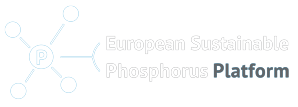City of Vienna 
Vienna is a fast growing city with around 1.9 Mio inhabitants and one of the most livable cities in the world, among other things due to eco-friendly focusing and strategic planning. With regard to the closing of broken nutrient loops, already up to 45 000 t/year of high quality compost is produced every year from 100 000 t of organic waste collected in the city, containing around 110 t of phosphorus (P). This compost is used as a valuable fertiliser even in organic farming and the production of a valuable, natural earth. In the near future, also phosphorus from wastewater, more specifically from sewage sludge ash should find its way back to agricultural soils as a valuable fertiliser. The whole wastewater of the city of Vienna is treated in one wastewater treatment plant (capacity 4 Mio. population equivalents). The arising sewage sludge is incinerated in three fluidized bed reactors. The political will is to recover the c. 1 100 tP/y of valuable phosphorus present in the 12 000 t of sewage sludge ash. The municipal department 48 (MA 48) is responsible for waste management, street cleaning and vehicle fleet in the City of Vienna, and so for the residues from the incinerators, and is developing strategies to recover the phosphorus in the near future. Vienna City joins ESPP for comprehensive exchange of ideas, knowledge and experience in the field of phosphorus recovery. Furthermore, they believe that within a strong community of interest, it is possible to steer things in the right direction: closing of broken nutrient cycles.
Contact details
Website: www.wien.gv.at/english
Email:
